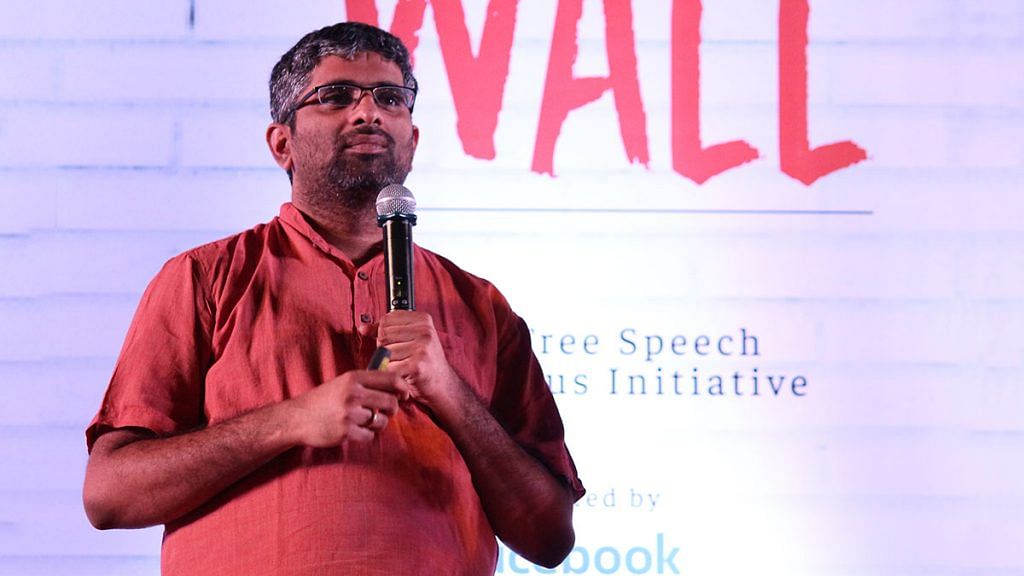New Delhi: There is no such thing as “good fake news” and “bad fake news”, and they are both just misinformation, says Rakesh Dubbudu, the founder of Factly, a fact-checking and data journalism portal.
“First of all, we should all come out of this distinction. Irrespective of what the message is, if there is something wrong, something false, then it is fake news,” he said at Democracy Wall, a free-speech campus initiative organised by ThePrint in collaboration with Facebook. “It doesn’t matter whether the message is positive or negative.”
“What fake news does to you as a person, as a rational human being, is that it dumbs down your intellectual agency and makes you more gullible,” he added, “Irrespective of whether something is good or bad, misinformation is misinformation.”
Dubbudu was one of several guests at the first edition of the second season of Democracy Wall, held at CMR College of Engineering & Technology, Hyderabad, Friday. Asaduddin Owaisi, the Lok Sabha member for Hyderabad, rapper/singer Sofia Ashraf, actor Nimrat Kaur and IPS officer Rema Rajeshwari were the other invitees.
‘Be a doubting Thomas’
Weighing in on the fake news problem confronting the world, Dubbudu said ordinary citizens could prevent fake news dissemination.
“A lot of times, our choice of spreading information is directly linked to what we like and what we dislike,” he added, “So, if there is some message that is to your liking, doubt it twice. Let us all be a doubting Thomas, there is nothing wrong in being a doubting Thomas.”
Whenever one receives a message seeking to peddle a fact, he said, people should Google it for verification. If doubts persist, he added, one should send that message to a fact-checking agency.
“Please make it a point to rebut, to say that something is false. Our parents’ generation is using technology for the first time,” he said, “So any message they receive, please tell them not to forward it blindly.”
Cautioning the audience that anyone can be a victim of fake news, he said, “the worst-case scenario is that a lot of people think that nothing will happen to them. But we all could become victims”.
To understand what is true and what is not, it’s important to trust one’s instincts, he added.
“If tomorrow somebody sends you a message saying that there won’t be any final exams and you’ll be graded based on how you behave in the classroom, will you believe it?” he asked.
“If there is anything which is too good to be true, then it will be false 99.9 per cent of the times,” he said.
Also read: Facebook’s push to stop fake news in India isn’t working well
Opinion vs informed opinion
Stressing the difference between opinion and informed opinion, he said the latter was critical to a democracy’s functioning. “If democracy has to thrive and our votes have to be fruitful, then we all need to have an informed opinion,” he said.
He also stated that we should not allow any objectionable behaviour online.
“Most technology companies have something known as community standards. So on community standards, disallow any online objectionable behaviour,” he said, adding that public action can help curb this menace.
“The behaviour could be harassing people or threatening them. You can obviously report. The more you report, the more the companies are likely to take action.”
During the event, Dubbudu also discussed how Factly operates. “What we do is, any message or post that comes to our notice and people report it to us saying it could be potentially false, we do a fact-check and write a story saying whether it is true or false.”
Also read: Finland has found the most effective method to counter fake news – education
